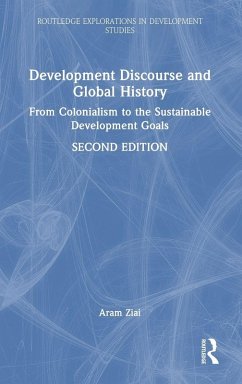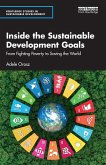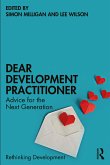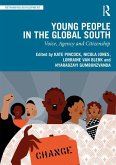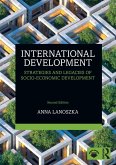Development Discourse and Global History introduces readers to the shifting ways in which people have been talking and writing about 'development' over time, and the rules governing the conversation.
Drawing on the methods of Michel Foucault, Ziai's ground-breaking book traces the origins of development discourse back to late colonialism and notes the significant discontinuities that led to the establishment of a new discourse and its accompanying industry. This book goes on to describe the contestations, appropriations and transformations of the concept over time. It shows that trends which have emerged since the 1980s, such as an emphasis on participation and ownership, sustainable development, and free markets, are incompatible with the original rules and so lead to serious contradictions. The Eurocentric, authoritarian and depoliticising elements in development discourse are uncovered, whilst still recognising its progressive appropriations. This new edition includes revisions throughout, and an important new chapter on race and racism, as well as a discussion of the evolution of the Sustainable Development Goals.
This book is perfect for students and researchers in development studies, global history and discourse analysis as well as an interdisciplinary audience from international relations, political science, sociology, geography, anthropology, language and literary studies.
Drawing on the methods of Michel Foucault, Ziai's ground-breaking book traces the origins of development discourse back to late colonialism and notes the significant discontinuities that led to the establishment of a new discourse and its accompanying industry. This book goes on to describe the contestations, appropriations and transformations of the concept over time. It shows that trends which have emerged since the 1980s, such as an emphasis on participation and ownership, sustainable development, and free markets, are incompatible with the original rules and so lead to serious contradictions. The Eurocentric, authoritarian and depoliticising elements in development discourse are uncovered, whilst still recognising its progressive appropriations. This new edition includes revisions throughout, and an important new chapter on race and racism, as well as a discussion of the evolution of the Sustainable Development Goals.
This book is perfect for students and researchers in development studies, global history and discourse analysis as well as an interdisciplinary audience from international relations, political science, sociology, geography, anthropology, language and literary studies.
"The book's main strength is the way in which it draws together a wide range of critical discussions of development and condenses from them a coherent and clear critique of development. While discourse analysis (and other poststructuralist approaches) are often criticised for using obscure or unnecessarily complex language, Ziai's book is clear and jargon-free. Furthermore, it begins with a very accessible discussion of poststructuralism and discourse analysis rather than assuming familiarity with the terms that will be used in the rest of the book." - The Journal of Development Studies, Sally Matthews, Rhodes University
"Development Discourse and Global History vividly follows the avatars of the development discourse from colonialism to the present, from the 'civilizing mission' to the SDGs and the newest subfields such as migration and development. It admirably deploys Foucauldian theory and methodology, demonstrating why its author has become the most persistent and insightful analyst of development from poststructuralist perspectives. With this collection of essays not only does Ziai bring the critical analysis of development up to date, he enlightens us on previously understudied aspects of it, principally the change and transformation it has undergone since its inception. By showing us the inconsistencies and contradictions of the discourse, and not only its negative effects and progressive appropriations, he provides us with a new platform for arguing why the concept of development needs to be abandoned, perhaps in favor of simpler, more honest notions, less encumbered by colonialist histories and Eurocentric categories. In doing so, finally, he renews the promise of critical theory as a crucial element in the toolkit for constructing other possible worlds." - Arturo Escobar, Kenan Professor of Anthropology, University of North Carolina, Chapel Hill, USA
"Development Discourse and Global History vividly follows the avatars of the development discourse from colonialism to the present, from the 'civilizing mission' to the SDGs and the newest subfields such as migration and development. It admirably deploys Foucauldian theory and methodology, demonstrating why its author has become the most persistent and insightful analyst of development from poststructuralist perspectives. With this collection of essays not only does Ziai bring the critical analysis of development up to date, he enlightens us on previously understudied aspects of it, principally the change and transformation it has undergone since its inception. By showing us the inconsistencies and contradictions of the discourse, and not only its negative effects and progressive appropriations, he provides us with a new platform for arguing why the concept of development needs to be abandoned, perhaps in favor of simpler, more honest notions, less encumbered by colonialist histories and Eurocentric categories. In doing so, finally, he renews the promise of critical theory as a crucial element in the toolkit for constructing other possible worlds." - Arturo Escobar, Kenan Professor of Anthropology, University of North Carolina, Chapel Hill, USA

